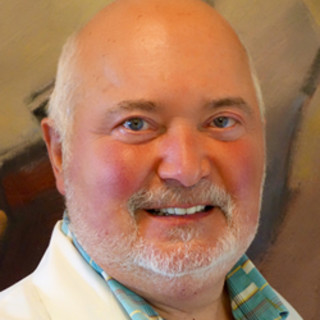
Being a grandfather or grandmother is one of the more rewarding experiences in life. The ability to look at the younger years of our grandchildren, when they do no harm, and enjoy them and their movies, gives us a second chance at experiences we may have missed.
I was watching “Mary Poppins” with my grandchildren and found it delightful and uplifting. For days, I was rehashing a song in my head: “Just a spoonful of sugar makes the medicine go down.” Eventually, as a clinician, I started feeling a bit concerned. I had to ask myself: What is a spoonful?
It is the purview of physicians, nurse practitioners, and physician assistants across specialties—Pediatrics, Family Medicine, Internal Medicine, Urgent Care, Emergency Medicine, Geriatrics, and even retail healthcare—to examine patients presenting with cold symptoms, allergy symptoms, or a cough. Often, the final disposition is a note suggesting some form of over-the-counter (OTC) medicine. We commonly use the phrase “one or two teaspoons” and either document (or fail to document) this dosage. Either way, the potential for creating an iatrogenic poisoning or a drug reaction is quite high.
It is always important to know what medications your patient is taking; such a practice should accompany every patient encounter. It trains the clinician’s mind to treat every patient as if they are a new patients. Most nurse practitioners and physician assistants enter this profession with the idea of working for 30-40 years. Prudent thinking in the prevention of malpractice can never start too early. Engaging in thoughtful practice illuminates cross-sensitivity to the prescribed OTC drug. We need to look at OTCs as carefully as we would any prescribed medication. With OTCs, it remains important to know the age and the weight of the patient, as a spoonful may be too little or too much. If the patient is a pediatric patient, the parent may be confused by the description of a “spoonful.” They might give a tablespoon, a teaspoon, or a pediatric feeding spoonful. Children who are taking a drug, particularly an OTC drug, are thus at a greater risk for a bad reaction.
For our senior citizens on polypharmacy, there are many potential drug-drug-interactions that increase or decrease the effectiveness of other medications, making way for hypertension, severe hypotension, or rhythm changes related to cardiac drugs. Consider for a moment the patient on Coumadin. Coumadin reacts with a number of other medications, as well as foods and alcohol. Coumadin can affect a patient’s international normalized ratio (INR) and create a life-threatening bleed in the brain or gastrointestinal system.
I was scolded by my cardiologist last month for taking a class III antiarrhythmic with herbal drugs, vitamins, and minerals. He made me wait an additional hour in his office, then had me step into his private room and asked me, “What is it that you don’t you understand about taking no additional supplements or herbs?” As a healthcare provider, he was shocked because I could have caused Torsades De Pontes. He asked me if my need to take supplements (including fish oil and glucosamine and chondroitin) surpassed my need to live. His direct approach created an awareness of my nonchalant attitude with supplements.
All of these potential problems can lead to a poor outcome for the patient, as well as a possible lawsuit for the provider. What can the collective “we” do to prevent a patient incident that is negative or life threatening? Check for other medications, review current drugs, look at the patient’s age and weight, and be thoughtful in prescribing an OTC.
Is there anything else to glean from this? Perhaps. Problems secondary to failure to appropriately document a patient’s medications and cross-reference contraindications are high on the hit list of causes for litigation, particularly in retail healthcare clinic. These findings should ultimately prompt the smart clinician to consider how to best protect himself/herself. Accuracy is the name of the game; more than that, it is a mandate for healthcare professionals.
It is not a coincidence that you are reading this today. I write with heartfelt concern and as a colleague who wishes all nurses and physician assistant long and successful careers. The ultimate goal is to retire with pride, satisfaction and without knowing that it was because you became nonchalant or “sloppy.” No provider wants to live with the fact that he/she caused a catastrophe, lost a life, or created a life-threatening situation. We all have a conscience. Please take my “spoonful of advice.”
Image: twomeows / gettyimages







